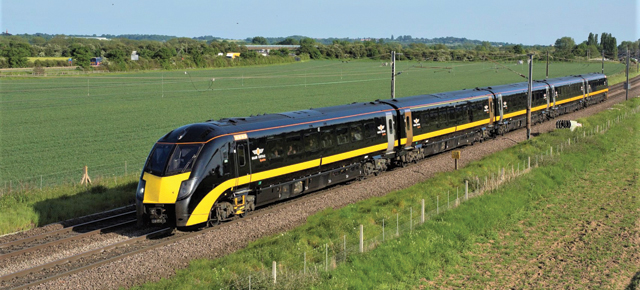We must ensure that the long-term rail reform agenda stays on course while taking immediate action to bring customers back

By David Brown
The railway finds itself at a critical point and it has never been more important that we move at pace to attract new customers, boost economic growth and reduce the burden on the taxpayer.
Of course, it’s vital that we don’t take our eye off the ball when it comes to longer-term reform. That’s partly why the secretary of state for transport’s recent George Bradshaw Address was so timely. It was essential that the question marks forming around the government’s thinking on rail reform were dispelled. And I welcomed the commitment to a more pragmatic partnership between the public and private sector under the guiding mind of an appropriately sized Great British Railways.
However, while the transport secretary’s remarks were constructive, there remains an urgent need to accelerate the reform agenda. The financial impacts of the pandemic, coupled with the disruption brought about by industrial action, have created a burning platform for change. Inaction is a luxury the railway cannot afford, particularly when structural, longer-term reform is dependent on the parliamentary calendar allowing for the introduction of a Transport Bill.
That’s why we must give increased weight to those non-legislative changes that can be made immediately to bring passengers back to the railway. For instance, the use of revenue incentives has a track record of driving passenger growth and recovery, rewarding operators for innovating and winning new customers.
The Department for Transport has already shown a welcome signal of intent by considering modest revenue incentives within National Rail Contracts (NRCs). However, the action required must reflect the scale of the challenge. This means releasing the handbrakes on growth that are currently in place within NRCs. This will enable operators to fully leverage their commercial expertise, increase passenger numbers and help return the railway to a more sustainable financial position.
To put the scale of the opportunity into perspective, Rail Partners estimates that incentivisation could generate an additional £800m of revenue for the railway and HM Treasury
To put the scale of the opportunity into perspective, Rail Partners estimates that incentivisation could generate an additional £800m of revenue for the railway and HM Treasury.
Immediate action can also be taken to place decision making around marketing and promotional spend back into the hands of those closest to customers – the operating companies. There’s an understandable determination from government to reduce costs, but it’s short-sighted not to consider the impact that cutting certain areas of spend might ultimately have on revenue.
The transport secretary himself has said that he wants DfT to take a step back from the day-to-day running of the railway. There’s no better argument for this than the recruitment processes that can be enforced on operators, where every job advertised, safety critical or otherwise, must be approved by DfT – a process which can take weeks to complete. All this does is create unnecessary bureaucracy that ultimately adds to costs and impacts the service provided to customers.
These lessons must be taken into account when the new public service contracts are created, because, as ever, the devil is in the detail. As we heard in the Bradshaw Address, managing directors of train operating companies must be given the freedom to manage and direct their businesses, focussing on the issues that really matter to customers rather than spending disproportionate time and resources on scoring regimes that have no bearing on the passenger experience.
Open access providers have clearly demonstrated the importance of empowering operators to make strategic commercial decisions
Open access providers have clearly demonstrated the importance of empowering operators to make strategic commercial decisions. It’s no coincidence that operators like Grand Central and Lumo have been more successful than their contracted counterparts in winning customers back post-pandemic. That’s why it’s so important that the role and contribution of open access operators is not just safeguarded but given the opportunity to grow as part of the wider reform agenda.
What we need is a twin-track approach, ensuring that the longer-term reform agenda stays on course and retains its momentum, while at the same time taking immediate action that will bring customers back to the railway. If we get this right, then the railway will be in the best position to deliver for passengers, the taxpayer and the economy as a whole.
ABOUT THE AUTHOR: David Brown joined Arriva in September 2017 as Managing Director of Arriva Rail North and then as Arriva’s Group Communications Director before being appointed Managing Director UK Trains in October 2020. Prior to joining Arriva, he was Chief Executive of Transport for the North.
This article appears in the latest issue of Passenger Transport.
DON’T MISS OUT – GET YOUR COPY! – click here to subscribe!








